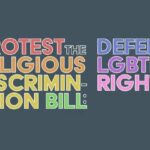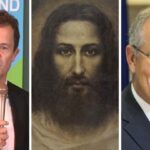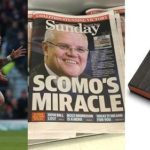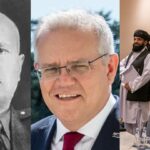Nonreligious Marginalised as NSW Privileges Religious Voice, Warns Rationalist Society’s Meredith Doig
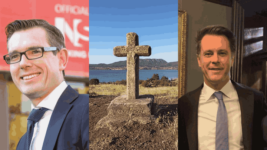
At a dinner of state faith leaders on 7 November, NSW Labor leader Chris Minns announced that if his party takes out the March state election, it will establish the NSW Faith Affairs Council, which will act as an advisory body to the executive on matters that affect religious organisations.
The council will incorporate representatives from a range of religions, and to reflect this multifaith basis, Labor plans on broadening the multicultural portfolio to incorporate religious affairs, with the Faith Affairs Council having a direct line to consult the minister.
Indeed, it’s not just Labor that considers a faith-based body should be assisting in government decision-making, as the Liberal Nationals government recently established its NSW Religious Communities Advisory Council, which commenced operations in January.
In terms of the Labor proposal, shadow multiculturalism minister Steve Kamper has suggested it would have direct input into policy matters such as voluntary assisted dying.
While critics are wary of prioritising religious leaders in shaping social policies, as, not only do they fail to represent much of the diversifying constituency, but often, these clerics don’t even hold the same opinion as many of the adherents of their religious organisations do.
Prioritising the prioritised
Chief amongst the critics of the NSW religious advisory bodies to state parliament is the Rationalist Society of Australia, which is calling out both major parties for failing to incorporate the nonreligious into these advisory bodies, leaving a third of the NSW constituency unrepresented.
RSA president Meredith Doig has written a letter to both the Perrottet government and the Labor opposition calling for their religious advisory bodies to include the nonreligious, especially as religious groups already have the ear of politicians, while the nonreligious are often left ignored.
Former prime minister Scott Morrison spent much of his time in office pushing his religious freedoms agenda. And in doing so, the Labor leader cloaked his religious privileging measures in laws designed to prevent discrimination against those of faith at the national level.
Similar to the federal jurisdiction, NSW doesn’t have antidiscrimination laws protecting those of faith, which most law experts agree are needed.
Minns has further stated that, on taking the premiership, he’ll ensure that those of faith are protected under the Anti-Discrimination Act 1977 (NSW). However, many in the community are hesitant about such suggestions after the stunt Morrison pulled in this regard.
Atheists, humanists and rationalists
The Rationalist Society of Australia has been promoting and protecting free thought in the Australian political sphere since 1906. And whilst the organisation considers those of faith should be free to express their opinions, these beliefs should not drown out those of the nonreligious.
Sydney Criminal Lawyers spoke to RSA president Dr Meredith Doig about concerns around prioritising religious voices in policymaking, the privileges faith-based organisations are already gifted, and the benefits separation of church and state provides.
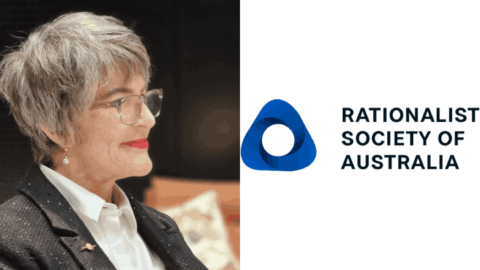
The Rationalist Society of Australia has raised issue with NSW Labor’s proposal to establish a NSW Faith Affairs Council that will act as an advisory body to government.
So, Dr Doig, why is the NSW Faith Affairs Council problematic in the opinion of your organisation?
Minns was quoted as saying his proposed NSW Faith Affairs Council would give “religious organisations a strong advocate within a Minns Labor Government and our decision-making process” and that the council would be a “solutions warehouse”.
Religious groups already have extraordinary levels of access to politicians. Nonreligious groups, such as atheists, humanists and rationalists, represent the fastest-growing section of our population and yet our voices are routinely ignored in the political process.
The proposed Faith Affairs Council would privilege even further the influence of religious clerics – at a time when the Census shows that more and more voters are turning away from religious affiliation.
If Labor genuinely respects diversity and the contribution of nonreligious citizens, then at the very least it should broaden the scope of the body to include nonreligious beliefs and give nonreligious community groups seats at the table.
Further privileging the view of religious organisations in the policymaking process is even more troubling given their leaders are out of step not just with wider society but with their own followers as well.
In the landmark Religiosity in Australia series, social researcher Neil Francis showed that the vast majority of Catholics, for example, support access to safe, legal abortion and to the choice of voluntary assisted dying at end of life.
Creating new advisory bodies that exclude nonreligious people and further privilege religious people is at odds with Australia’s international commitments to treating people equally regardless of religious or nonreligious beliefs.
Article 18(1) of the International Covenant on Civil and Political Rights states: “Everyone shall have the right to freedom of thought, conscience and religion. This right shall include freedom to have or to adopt a religion or belief of his choice…”
In 2018, the Ruddock Inquiry into Religious Freedom in Australia emphasised that freedom of thought, conscience and religion “is a right enjoyed by all, not just those of faith” and protects not only those of faith but “those who live by other beliefs or, indeed, no beliefs.”
According to the last Census, the nonreligious represent the fastest-growing section of the citizenry of New South Wales, surging from 25 percent in 2016 to 33 percent in 2021.
Why, then, would NSW Labor not show equal recognition of and respect for nonreligious people by inviting representatives of atheist, humanist and rationalist community groups to the proposed new body?
In your opinion, at a time when the number of nonreligious people in the community is growing, now sitting at about one-third in NSW, why are both major parties implementing a faith-based voice to parliament that completely ignores the fastest growing section of the NSW constituency?
There are probably two main answers to this question. One is that politicians have traditionally assumed that religious leaders are important because they can influence large numbers of voters.
The second is that the nonreligious are almost by definition – being “non” – an amorphous lot, without identifiable institutional leadership.
The women’s movement of the 1980s suffered a similar problem. Even when governments wanted to engage with their growing constituency, finding a single representative body to consult proved elusive.
But times have changed, and consultative techniques must change too.
Contrary to the assumptions of many politicians, most religious people do not make electoral decisions on the basis of their religion.
According to the report Religiosity in Australia: Religion and Politics, “religion is a weak factor in Australian general elections… most Australian voters (86 percent) say that religion is not at all a factor in casting their election ballots”.
Further, there is a large gap between the values espoused by clerical leaders and the attitudes and behaviours of their followers.
While bishops and archbishops might rail against abortion, equal marriage and voluntary assisted dying, mainstream religionists continue to approve these reforms.
Sixty-six percent of Australian Catholics say abortion should be readily available, 70 to 80 percent of religionists approve of voluntary assisted dying, and since marriage equality was legalised in 2017, support for it has only grown stronger, including about two-thirds of the most religious Australians.
If a NSW government of either side of politics wants to engage voters on the question of their beliefs, they should broaden the remit to include both religious and nonreligious worldviews.
They should not form a consultative body that would only further entrench privileged access to decision-making by clerical leaders who do not represent the attitudes of the majority of their followers.
In a genuinely secular society, there should be equality of treatment by governments of religious and nonreligious worldviews.
The Perrottet government’s Religious Communities Advisory Council has said its work will be guided by principles set out in the state’s Multiculturalism Act 2000 (NSW).
Section 3(1)(e) of that Act states:
all individuals in New South Wales should have the greatest possible opportunity to—
(i) contribute to, and participate in, all aspects of public life in which they may legally participate, and
(ii) make use of, and participate in, relevant activities and programs provided or administered by the Government of New South Wales.
If the Liberal Party genuinely respects diversity and the contribution of all its citizens, including its nonreligious citizens, it should broaden the council’s scope to include the voices of nonreligious community groups such as atheists, humanists and rationalists.
NSW Labor has suggested it might enact antidiscrimination laws relating to those of faith, which most law experts consider are needed.
Although, the Morrison government used this as an excuse to cloak laws privileging religious liberties over all others within antidiscrimination measures.
What are your thoughts on this proposal by NSW Labor?
Along with South Australia, NSW is the only state in Australia that does not include religion as a protected attribute under antidiscrimination law.
RSA would support the inclusion of religion or belief as a protected ground in antidiscrimination law, as it is in Victoria, Tasmania, Queensland, and Western Australia.
Whilst these NSW bodies are being established as multifaith, Christianity continues to be the chief religion influencing Australian politics. And despite a growth in the nonreligious, we continue to have political leaders pushing religious agendas in parliament.
An extreme example of those of the Christian faith trying to influence politics involved hundreds of Pentecostals attempting to infiltrate the SA Liberal Party a few years ago.
Are these developments something the broader community should be concerned about?
Yes, and no.
Yes, because politicians continue to use public funding to benefit institutionalised religion in ways that can hardly be said to be ‘in the public benefit’.
Just some examples are:
Over a billion dollars of taxpayers’ funds having been funnelled into propping up religious jobs in schools across the country via the National School Chaplaincy Program – and the administrative regimes of the religious agencies that manage them.
Unlike all other charities, Basic Religious Charities don’t have to report any of their financial details and are exempt from complying with basic governance standards.
Religious schools, hospitals and social service agencies are allowed to refuse to provide public services even though they get public funding.
In most states, supposedly secular government schools continue to be infiltrated by unqualified religious missionaries, under the guise of Special Religious Education, when, in fact, they are using these schools as mission fields to prop up their failing churches.
In the Australian Defence Force there is a high level Religious Advisory Committee to the Services (RACS) that is set up to provide privileged access by religious clerics to the senior leadership of army, navy and air force, even though the vast majority of serving men and women are not religious.
No, in the sense that the Australian public has little appetite for overtly religious political parties or politicians.
Cory Bernardi’s Australian Conservatives party failed. Scott Morrison’s attempt to infiltrate a religiously biased agenda into law also failed.
Australians are not like Americans: we don’t take kindly to politicians who wear religiosity as a badge of honour.
And lastly, Dr Doig, NSW shadow multiculturalism minister Steve Kamper told The Catholic Weekly last November that NSW Labor is okay with “the argument that church and state should be separate”.
Is rhetoric like this concerning when it comes in relation to prioritising a religious voice in policymaking?
RSA welcomes Kamper’s statement that church and state should be separate – if only his party’s actions aligned with these words.
Even better would be for Kamper to say, loudly and proudly, that his party supports a genuinely secular state which would mean:
Firstly, a state in which there is freedom to practise one’s faith, as long as doing so does not harm others, and where there is freedom to change one’s religion, or leave it altogether, without fear of persecution.
Secondly, a state in which government authorities treat religious and nonreligious worldviews equally, so that adherents are neither advantaged nor disadvantaged by deliberate public policy.
And, a state in which there is separation between the institutions of the state and religious institutions, and where religious institutions may contribute to public debate but not dominate.


